Q&A: Michelle King era closes with questions about the future of the Los Angeles Unified School District
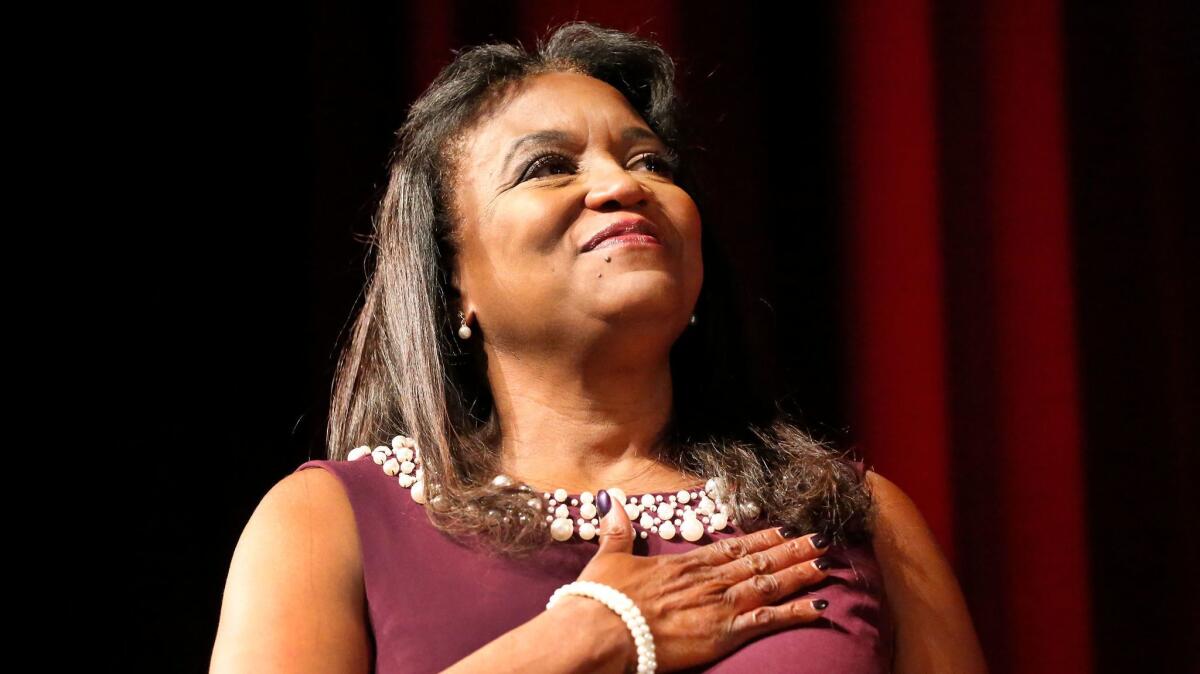
Board of Education members face difficult decisions this week after the sudden retirement of L.A. schools Supt. Michelle King. The school board will meet Tuesday in closed session, its first gathering since King announced Friday that she has cancer and that she will not return to work following a four-month medical leave.
King’s departure and what comes next has raised questions about her legacy, the state of the school district and the path forward. People also are concerned about King, who is making a stunning, saddening exit from the scene after a term in office that began in January 2016 with widespread hope and good feelings.
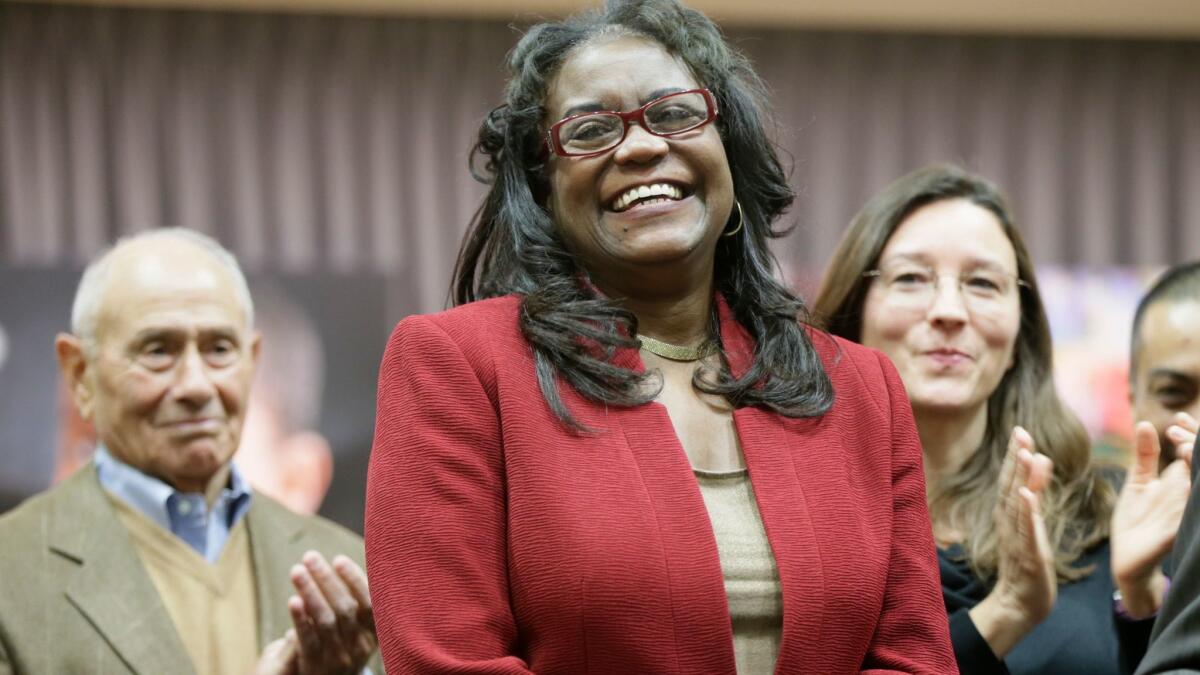
What’s wrong with L.A. schools Supt. Michelle King?
A private person, King had disclosed nothing about her condition until Friday, when she announced that she is battling cancer and that she won’t return to lead the nation’s second-largest school system.
Neither King nor the district has provided additional information. Sources close to the situation, who were not authorized to speak, said that King concluded recently that her treatment has not made enough progress to give her confidence that she could soon resume work.
Not long before her medical leave, King, 56, had begun using a cane and was in obvious discomfort. At her last school board meeting, on Sept. 12, King had difficulty moving about.
No one has verified that the issue in early September was cancer. A story making the rounds was that she had injured herself zip-lining on vacation with her family. The district never confirmed nor denied that account.
King’s medical leave began Sept. 15, with no public announcement. On Oct. 7, she emailed senior staff that veteran administrator Vivian Ekchian would take over temporarily and that her doctor would reevaluate her condition at the end of the month as she recovered from “a medical procedure.” On Oct. 24, she emailed staff saying, “I anticipate returning to the office after the first of the year."
In December, without making a public announcement, she set the date of her return from medical leave as Jan. 22, but it became clear last week that she wasn’t ready to come back.
Who’s in charge at L.A. Unified?
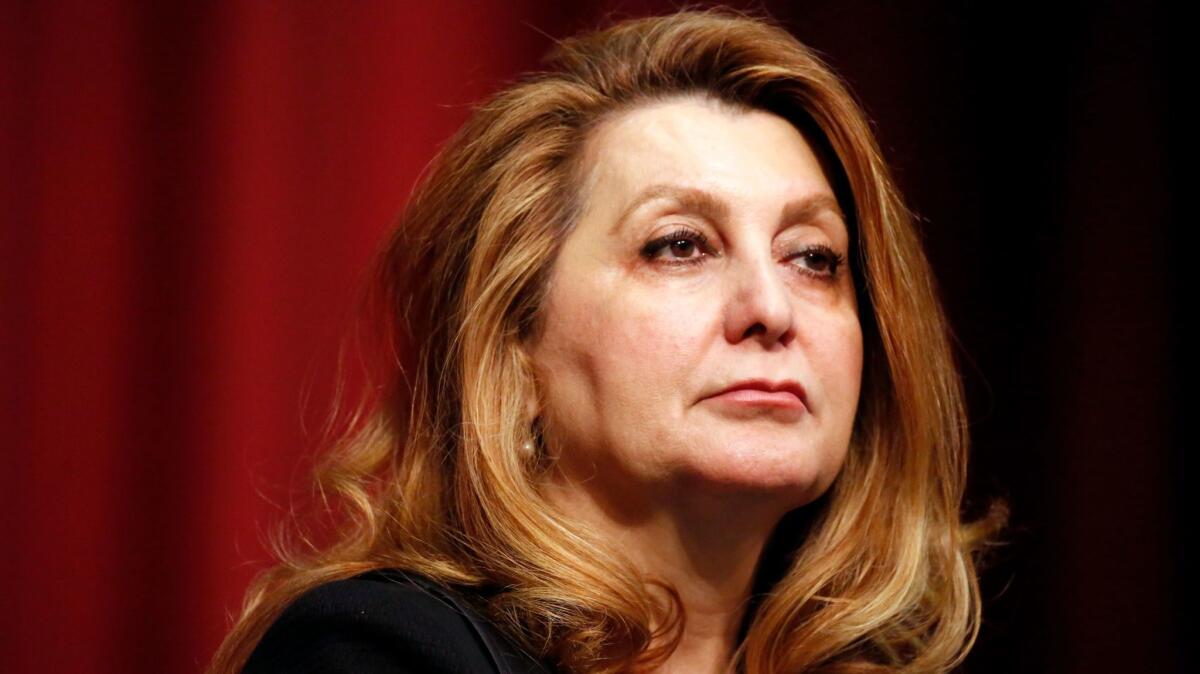
Acting Supt. Vivian Ekchian is in full control of day-to-day operations and is carrying out the orders of the school board. Ekchian also seems prepared to become, for now, the face of the district administration.
On Monday, when school resumes after winter break, she’ll attend ceremonies with school board president Monica Garcia at five different schools across the sprawling district to visit classrooms and honor selected students and teachers for “perfect attendance.”
Ekchian’s packed public schedule was released last Thursday, the day before King’s announcement. The timing suggests that senior officials were well aware by then of King’s decision, and that they had decided to raise Ekchian’s profile as a confidence-builder for the public and district employees either before or after King’s situation became known.
The reach and span of Ekchian’s authority is unknown. Since October, Ekchian has had the difficult job of carrying out King’s vision for L.A. Unified — and yet King’s own long-term strategic plan was a work in progress and her long-term support from the new school board majority, which took control in July, was uncertain.
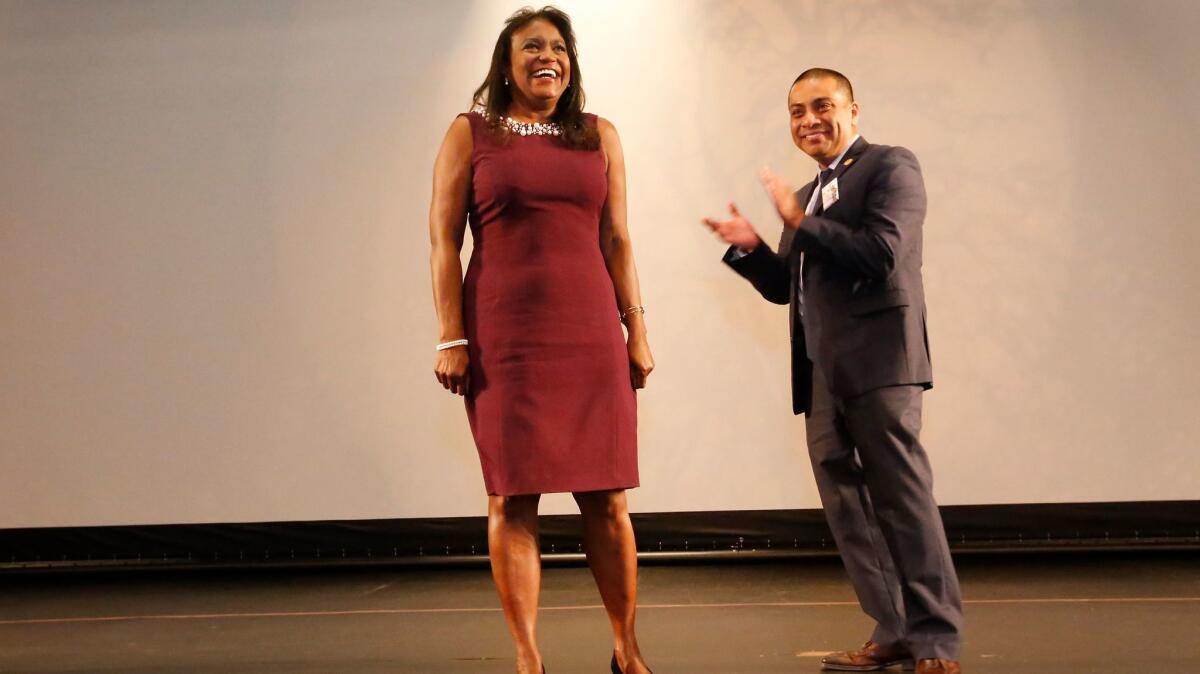
This majority was elected with substantial financial support from advocates for charter schools. It did not choose King, a career district employee, and it did not choose Ekchian, who was King’s pick to hold down the fort until her return.
What happens next?
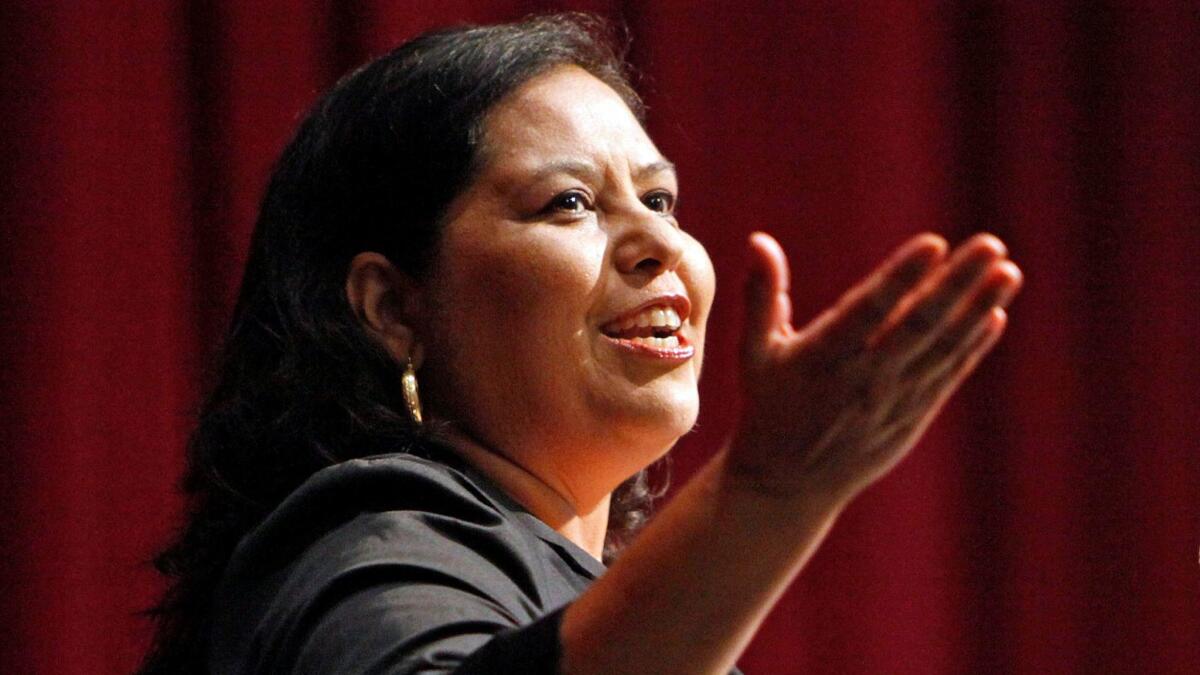
The Board of Education will discuss its next move during its private session Tuesday. The board is likely to make an announcement of some sort after that meeting. For four months, questions about the district’s leadership had been in limbo, but with King choosing to retire, the path is now clear to name a successor.
Doing so, however, is a fraught and complicated task.
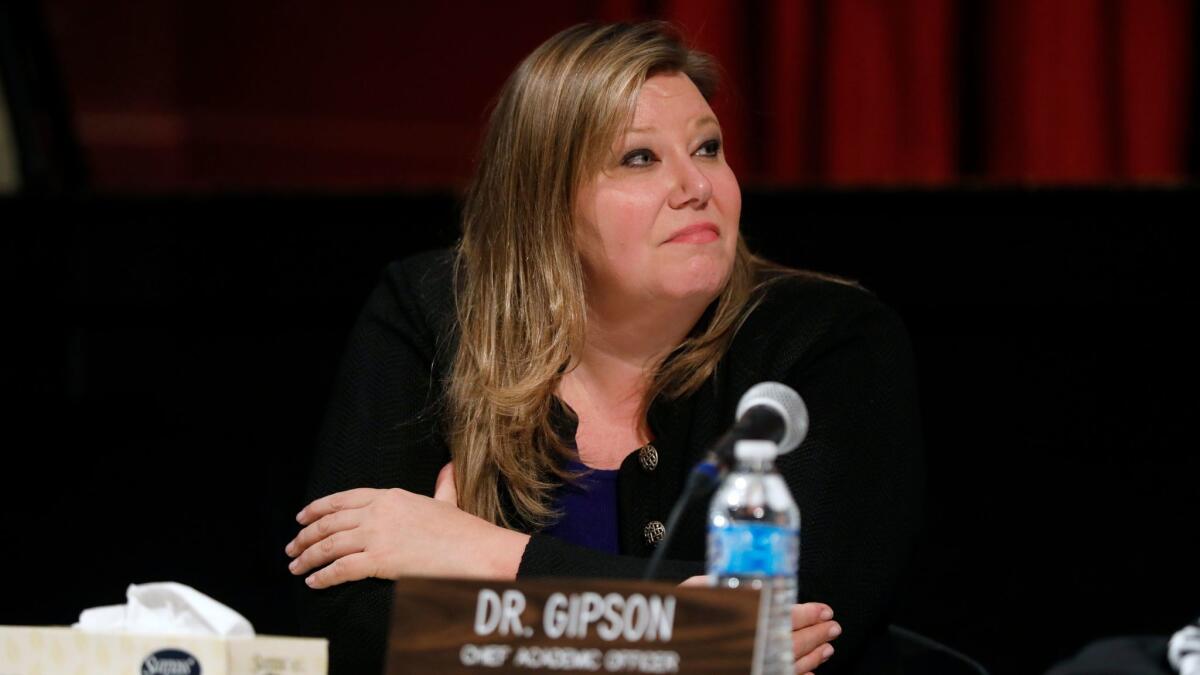
Large school districts typically hire a firm to lead a confidential search process, which usually takes several months or more. Two insiders who will attract notice are Acting Supt. Ekchian and Chief Academic Officer Frances Gipson, who has less experience but some support in the philanthropic community.
But candidates from outside the school system almost certainly will be considered.
What are the challenges going forward?
The district faces a serious financial bind exacerbated by declining enrollment and underfunded obligations to retiree healthcare and pensions. Also, labor contracts have expired. More broadly, the very mission of L.A. Unified must be shaped going forward: Will it be the reinvigorated major provider of schooling in the region or a rump institution in a sea of charter schools or a bureaucratic relic in a tailspin?
What will King be remembered for?
King was the first black woman to become superintendent. She was singularly of L.A. Unified — she began grade school in the district and returned as a teacher who rose through the ranks.
As principal at Hamilton High, she was known for working through delicate and difficult problems with patience and understanding. In subsequent higher positions, she was hard-working, reliable, loyal and never made waves.
King inspired confidence among those who viewed her as one of their own, but some questioned whether she had the vision or political skills to shape the district going forward.
King’s tenure will be closely identified with two efforts of the previous board majority: increasing the graduation rate and countering the enrollment loss caused by the growth of privately operated charter schools.
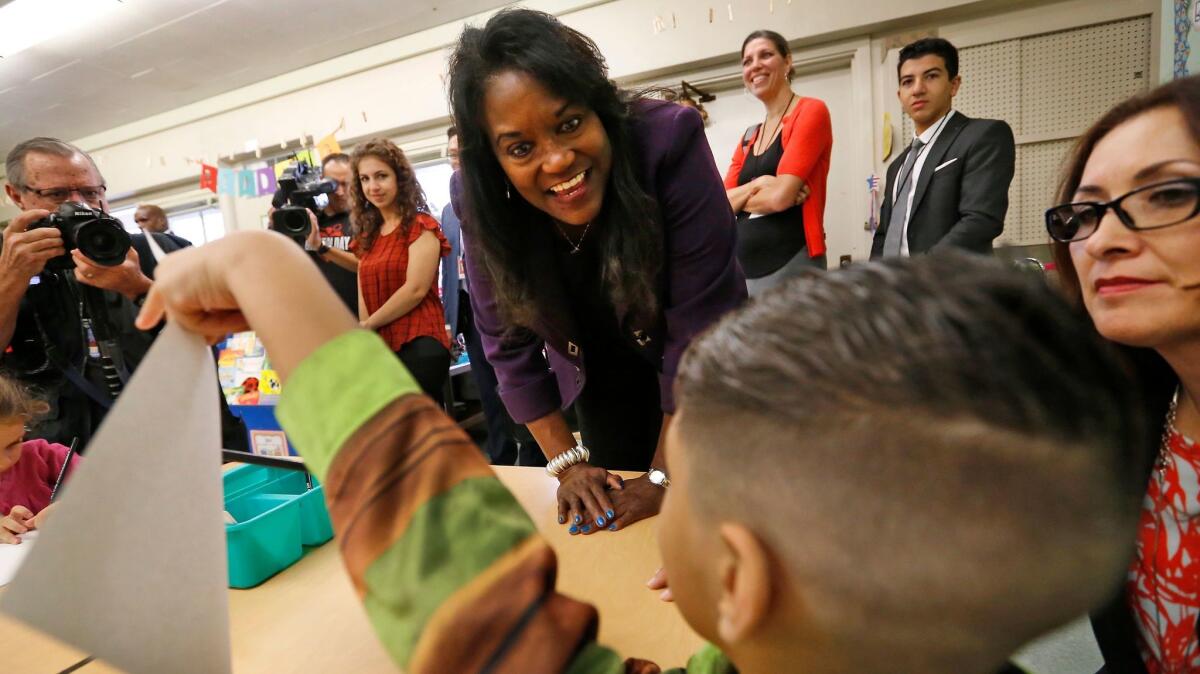
The graduation rate hit record levels, but amid unanswered questions about the rigor of shortcuts students used to make up failed classes.
An enrollment initiative was underway. Expanded special offerings included new magnet schools and programs to help students become fluent in two or more languages. Such efforts have yet to reverse the ongoing enrollment decline.
King impressed those around her as having a genuine willingness to work with both traditional educators and charter advocates, labor leaders and civic groups.
Sign up for Essential California
The most important California stories and recommendations in your inbox every morning.
You may occasionally receive promotional content from the Los Angeles Times.








